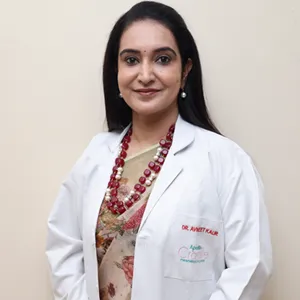Paediatric orthopaedics is one of the most important branches of orthopaedics. Paediatric orthopaedic surgery is a speciality that treats disorders of the bones and joints in children. It deals with the physical growth and development of children; those who are growing and in the critical stage of growth follow a strict set of guidelines and special restrictions.
What is paediatric orthopaedics?
A paediatric orthopaedic doctor is the most qualified and experienced doctor to assess and treat musculoskeletal (bone, joint, or muscle) problems in a growing kid. This encompasses newborns up to the age of 18.
When should I take my child to paediatric orthopaedics?
If your child is experiencing any pain or discomfort in their bones or joints, this may be a sign that they need to see a specialist. Additionally, if they have any deformities in their bones or joints or if they are not growing at a typical rate, these are also reasons to seek out orthopaedic care.
Orthopaedic specialists can help diagnose and treat a variety of problems, ranging from simple to complex. If you are unsure whether or not your child needs to see a specialist, you can always consult with your paediatrician for more guidance.
What are orthopaedic problems in babies?
Orthopaedic birth abnormalities are classified into several categories.
- Clubfoot (the most common orthopaedic birth defect)
- Hip developmental dysplasia (DDH): hip dislocation
- Adductus of the metatarsus (curved foot or in-toeing involving the feet)
- Scoliosis (side curvature or twisting of the spine) and kyphosis are two examples of spinal abnormalities (bowing).
What are orthopaedic birth defects?
Orthopaedic birth defects are a group of conditions that affect a baby's bones and muscles, as well as the tendons and ligaments that link them. These diseases arise during your baby's development in the uterus.
How should you prepare for the visit of your child to paediatric orthopaedics?
As a parent, you want what is best for your child. That’s why, when your child needs to see a medical specialist, you want to make sure you are prepared. Here are some tips on how to get ready for a visit to paediatric orthopaedics.
Before the visit, take some time to learn about your child’s condition. This will help you understand what the doctor will be talking about and also help you know what questions to ask.
When you come to the appointment, be sure to bring along any relevant information, such as X-rays or MRI images. This will help the doctor get a better sense of your child’s condition. During the visit, be sure to ask questions if you don’t understand something.
What are the benefits of paediatric orthopaedics?
There are many benefits to pediatric orthopaedics, including the prevention and treatment of deformities, the promotion of growth and development, and the improvement of quality of life. Paediatric orthopaedics can also help improve a child's physical function and mobility.
Some common conditions that pediatric orthopaedics can treat include scoliosis, hip dysplasia, clubfoot, and cerebral palsy. Paediatric orthopaedics can also help treat fractures and other injuries.
If you are considering pediatric orthopaedics for your child, it is important to consult with a qualified orthopaedic surgeon to discuss the best treatment option for your child's specific condition.
Conclusion
Paediatric orthopaedics is a branch of orthopaedics that deals with the treatment of bone and joint disorders in children. Due to the complex nature of the human skeleton, the musculoskeletal system, as well as the central and peripheral nervous systems, paediatric orthopaedics is an extremely specialised field. The paediatric orthopaedic surgeon’s job is to evaluate, diagnose, and treat malformations, deformities, injuries, and diseases that affect the musculoskeletal system in children.
Request an appointment at Apollo Cradle, DELHI-NCR - Moti Nagar. Call 1860-500-4424 to book an appointment.
Rickets is a childhood disease in which the bones are soft and weak. The majority of infants develop rickets as a result of a chronic, severe case of vitamin D deficiency.
If your child has any unexplainable injury, a broken bone, or congenital deformity.
The risks associated with pediatric orthopedics are generally low, but there are some potential risks that parents should be aware of. These risks include infection, bleeding, and nerve damage.
Pediatric orthopedic trauma care principles include anticipating future development and bone remodeling potential, minimizing physical injury, and treating open fractures and compartment syndromes aggressively.

 92% Patient Satisfaction Score
92% Patient Satisfaction Score



